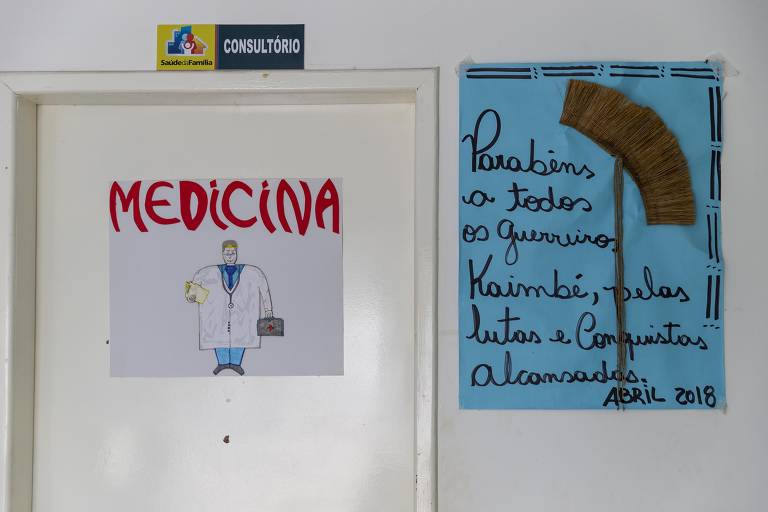The nurses keep trying several keys in the dressing room's door, which has been locked for months due to a "bat infestation." Part of the ceiling has fallen off, the light bulb is broken on the floor, and the gurney and the floor are dirty with hay and feathers.
"It was so much bat feces piling up that the ceiling came down," says nurse Geisa Cone, 39, about the federal health clinic at the indigenous reservation of Massacará, in Euclides da Cunha (BA), 205 miles away from the capital Salvador.
The clinic, which is under the Special Department for Indigenous Health, is an example of the lack of structure of primary care in rural Brazil.
Precariousness and lack of material and equipment are factors that explain why it's so hard to attract Brazilian professionals from the Mais Médicos program to these places, that are now left unattended. Cuban doctors represented half of the teams in the Mais Médicos program and were prevailed in areas in extreme poverty and indigenous reservations.
After Cuba announced it was withdrawing its doctors from the program, because of disagreements with president-elect Jair Bolsonaro, places like the Massacará clinic still wait for their replacements.
The government managed to fill almost 98% of the 8,517 job vacancies left by the Cuban physicians, but no one knows how many doctors will show up for work at their postings. This week, 200 had already given up their seats, and only 30% showed up for work.
The Massacará clinic serves 1,1750 people from the Kaimbé tribe and is 40 minutes away from city hall. To reach the clinic, one needs to drive a dirt road for 22 miles into the backcountry, in an area filled with cacti and cashew trees.
The clinic's dressing room is closed off to the public, and the staff says it's a needed space. "If a patient comes with a contaminated wound, that smells fouls; we have no choice but to put them next to a patient in a nebulizer. It's not right," Cone complains.
Translated by NATASHA MADOV
